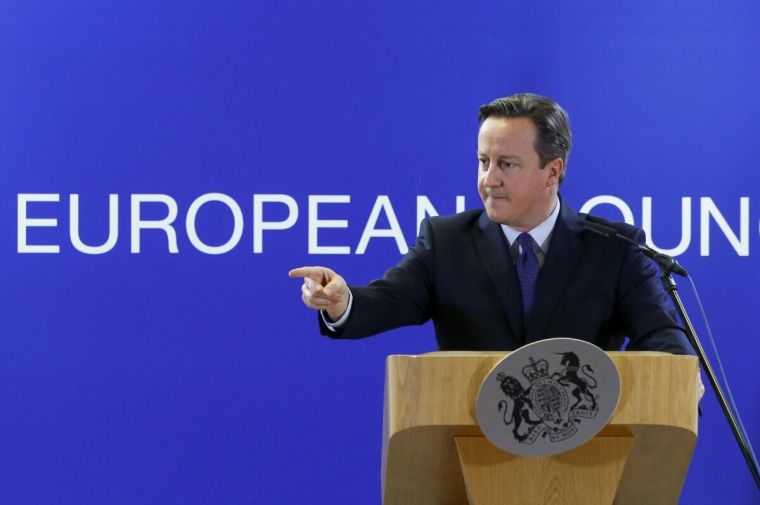'Vital' change increases chances EU referendum next year
David Cameron gave his strongest hint yet on Friday that he would hold a referendum on EU membership next year, saying 2016 would see the 28-member bloc finally address Britons' concerns.
Buoyed by a largely sympathetic hearing from fellow European leaders who, over dinner the previous evening, agreed to work for reforms by February to address all four of Cameron's key issues, the British leader said he was hopeful of a deal.

Officials said leaders gave negotiators a clear signal to find compromises in the next two months, though that will not be easy. Diplomats said the Belgian premier and others made a vain, last-ditch move to block a formal commitment to negotiate with London on ways to cut immigration from other EU countries.
Cameron indicated that he hoped a deal at a February summit could pave the way for a referendum on whether to stay in or leave the bloc as early as June -- before the onset of the summer months when refugees may make the treacherous journey from poverty and conflict to Europe.
"I believe that 2016 will be the year we achieve something really vital, fundamentally changing the UK's relationship with the EU and finally addressing the concerns of the British people about our membership," Cameron told a news conference, hinting that the referendum would follow a February deal.
His hand may have been forced by an indiscretion by French President Francois Hollande on Thursday, when he said Cameron's target date for the referendum was June - already widely expected. Paris is very keen to see the British issue settled before the French presidential election in April 2017.
Cameron, however, mindful that any failure to meet a self-imposed timetable could fuel opposition to the 'outers' who want to leave the EU, also said there was "no rush".
"I've set the deadline for the referendum for the end of 2017. I've always wanted to give myself time to get this right, what matters is the substance," he said.
Cameron appealed to other EU leaders to help him achieve his demands for EU reform to soothe voters' growing concerns about curbing immigration. Several said they found the former public relations man sincere and genuine, even moving, in his speech.
EU leaders were seemingly convinced the British leader was open to suggestions over how to better control the flow of EU migrants to Britain after balking at his idea to curb social payments to some workers from the bloc for being discriminatory.
TIGHT DEADLINE
Cameron said his proposal to make immigrants from the other 27 EU states wait four years before claiming "in-work" benefits in Britain - payments to people in lower paid jobs to make work more attractive - was still on the table.
But British government officials said he had shown flexibility and now it was up to lawyers and technocrats to sort out the details for his proposed reform of welfare, and his demands in three other demands, in two months.
"Now we have got a pretty tight deadline, I accept that, to bring it to a close by February but I think there is sufficient good will to have a really good go at that," he said.
"But I've left myself some room, I want to get the substance right ... There is plenty of time to get the substance that the British people need because this is a massive decision for our country."
With 16 weeks scheduled for campaigning, if a deal is secured at the next European Council in mid-February, that could mean a referendum in June.
Britons are split over membership of the European Union, but the 'out' campaign seems to be gaining the upper hand with many people who are fearful of increased immigration and put off by how the bloc has dealt with this year's migrant crisis.
Cameron's Eurosceptic opponents were dismissive of his efforts in Brussels. Matthew Elliott of the Vote Leave campaign said: "David Cameron's EU renegotiation is trivial.
"He claimed he put in 'hard work' for Britain but people will look at this and not believe his spin."
Cameron had hinted that he may campaign for an exit if he fails to win an agreement on migration, improve business competitiveness, give more sovereignty back to Britain and protect London's banks from discrimination by the euro zone.
But on Friday, he said he was hopeful the European Union could find solutions, not compromises, in all four areas where he wanted to see change.
With Europe facing a rising terrorist and other threats, he said: "I think we are better off standing together with our allies and partners in a reformed Europe, but we need to get that reformed Europe to make that happen."
"That's why if anything this renegotiation has got more important because it's so vital for the future for Britain, and I'd argue for Europe, that we get it right."











